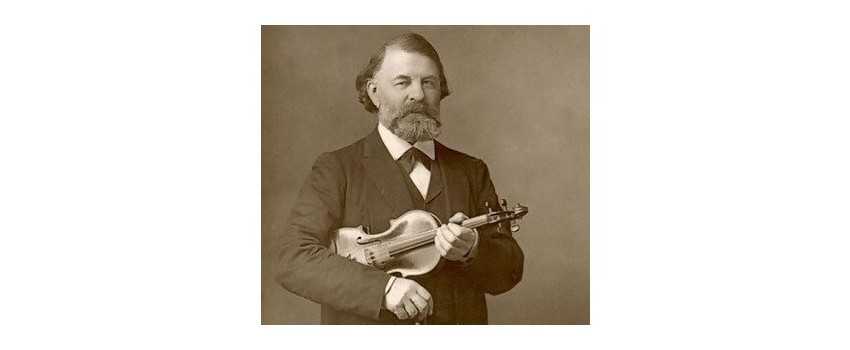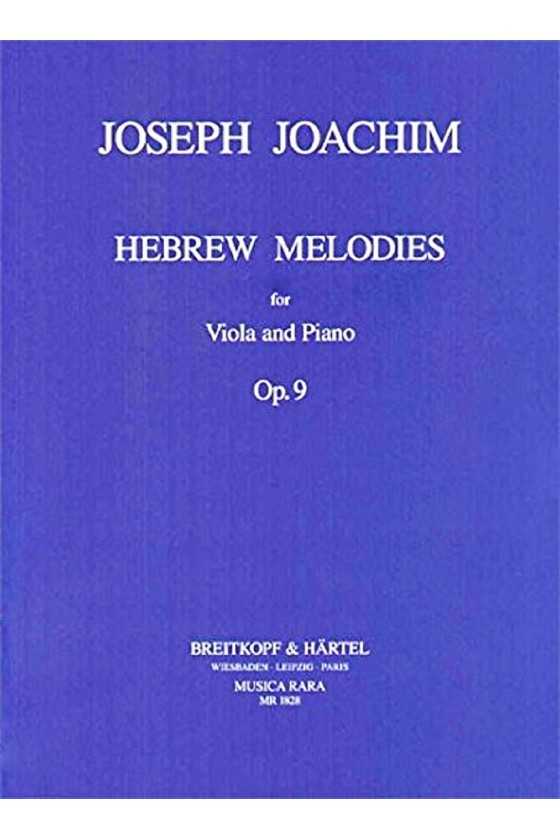Joachim, Hebrew Melodies For Viola And Piano Op. 9 (Breitkopf & Härtel)
Joseph Joachim's Hebrew Melodies, Op. 9, were composed in 1854-55, 40 years after the poems that inspired them. Lord Byron and Isaac Nathan published 29 songs called Hebrew Melodies in 1815, now known as poems. Joachim, a Jewish composer, drew from similar liturgical sources as Nathan and composed his work with three movements. Breitkopf & Härtel published this edition for viola and piano.


